Link to my cover video:
Larry Ballard "The Great Reset Or The Great We Set- The Final Act" 9-13-24
Nino:
Larry Ballard joins the corner once again to explain his research on what he envisions will happen in the coming months and years. Larry believes the collapse is imminent and we are within the final window.
In the coming global collapse banks will go under and stock markets will plummet and entire nations will go into default. This current war is about who will own the new system as both sides go to war on who will control the future of humanity. Will it belong to "We The People" or will it belong to a few powerful elites controlling a communist slave system of only 500,000 people?
They believe they will enjoy the new Eden and an abundance of limitless technology.. Will it be the Great Reset or Great We Set? You Decide.. Buckle up
Larry Ballard sat down with David “Nino” Rodriguez yesterday and they discussed the Great Reset/The We Set, and what Larry thinks will happen between now and the end of the year.
Personally, I think Larry’s summary of what is coming is one of the best out there. Will he be 100% correct? Time will tell, but I think he is in the ballpark. This is a fascinating interview that is a must-see. And I don’t say this lightly or often.
Everything I’ve been writing about for the past year and a half is easily summarized with Larry’s presentation in his interview with Nino. What is coming will be no picnic in the park. As Juan has said so many times this will be “America’s Near Death Experience.”
What is coming is not for everyone, and not everyone will survive what is coming. The end is not for everyone. In the end, God wins and because he wins so do we!
Putin Has Had Enough And War With NATO And The West Seems Imminent!
NATO, you are declaring war on Russia! We will respond" Putin warns west | Redacted News
Redacted Sep 12, 2024
Over the past 24 hours we've that the deep state puppets running the white house have finalized plans to expand the war against Russia. According to Politico the US and UK are getting ready for a massive escalation in the war against Russia.
Putin threatens war as Western allies near deal on missile strikes in Russia
September 12, 2024 11:00 pm CET By Dan Bloom, Esther Webber and Jamie Dettmer
White House summit on Friday could grant Ukraine new powers to strike Russia’s military bases.
Britain and the U.S. are poised to cross a decisive Rubicon in the Ukraine war on Friday at a White House summit where they will discuss plans to allow Kyiv to strike targets inside Russia with Western-supplied missiles.
In a final bid to scare off the West, Russian President Vladimir Putin warned on Thursday evening he would regard such an agreement as tantamount to NATO directly entering the war. “This will mean that NATO countries, the United States, and European countries are fighting Russia,” he said.
The threat came with U.K. Prime Minister Keir Starmer still en route to Washington ahead of Friday’s talks with President Joe Biden over Ukraine’s possible use of British-made Storm Shadow cruise missiles on Russian soil.
“Russia started this conflict,” Starmer responded, speaking to journalists on board his flight. “Russia illegally invaded Ukraine. Russia can end this conflict straight away.”
Military experts argue any guidelines agreed for the British weapons at the two-hour summit in Washington could also then pave the way for the Ukrainians to fire U.S.-supplied ATACMS — a tactical ballistic missile system — at airfields and army bases deep inside Russia.
Kremlin spokesperson Dmitry Peskov suggested the meeting between Starmer and Biden was a mere formality and that a deal had already been done, vowing Russia’s reponse “will be appropriate.”
Ukraine’s American allies have long resisted giving Ukrainian President Volodymyr Zelenskyy the green light to use their long-range ballistics against the Kremlin’s forces inside Russia, fearing Moscow could then escalate the war by retaliating against a target inside NATO, such as the critical weapons supply hub in the Polish city of Rzeszów.
The dynamics have now shifted dramatically, however, primarily thanks to a large shipment of Iranian missiles to Russia that the British authorities reckon will offer a critical firepower boost to Putin, just as his army extends its grip in eastern Ukraine with advances on the strategic city of Pokrovsk.
Diplomatic endgame
Friday’s White House summit represents the culmination of a week of intense diplomacy between the Western allies. U.S. Secretary of State Antony Blinken spent Tuesday and Wednesday locked in talks with his British and Ukrainian counterparts.
“We’re really in the last hard yards of diplomatic negotiations now,” said a U.K. government official, who like others in this story was granted anonymity to discuss sensitive matters.
Four other U.K. officials said they were not expecting any formal announcement this weekend. One said they were hopeful a deal would be confirmed at the U.N. General Assembly later this month, when world leaders including Biden and Starmer will gather in New York.
Western officials say the decision, if agreed, will not in itself change the course of the war, but are increasingly open to Ukraine’s entreaties that it will help them stem the flow of Russian gains in on the eastern front over recent months.
Britain had revealed its preferences under the previous Conservative government when David Cameron, then the foreign secretary, said Ukraine “has that right” to strike targets inside Russia.
But Washington has been resistant until now, anxious about the risk of escalation.
The second U.K. government official cited above said revelations this month that Iran has started providing ballistic missiles to Russia had changed Western thinking.
“Things have changed in the light of the Russian acquiring of ballistic missiles from Iran,” they said. “The fact that Blinken came over to the U.K. and chose to put on the record confirmation that Iranians are supplying Russia was a significant moment.”
Other officials around Europe drew the same link. A defense aide to a prime minister in the Baltic region said: “The dial shifted in Washington because of the Iranian missiles.”
“The wrangle now is over what targets Ukraine will be permitted to strike inside Russia, and how far inside — and there are worries still in Washington that filtering what can and can’t be targeted drags the U.S. into war-planning, something they are keen to avoid being seen as involved in.”
One Biden administration official, granted anonymity in order to discuss an evolving situation, said that while the shipment of Iranian missiles is concerning, it has not been driving decision making in Washington over sending Ukraine long-range missiles.
“This has been in the works for a long time and we’ve known [the Iranians and Russians] had been considering this move since last fall,” the official said.
Still, the U.S. administration has noted that threats in Ukraine are evolving. Speaking generally about the state of the war in Ukraine on Monday, NSC spokesperson John Kirby said: “The security landscape has changed — not is changing, not will change, but actually has changed — which is why we’re doing everything we can to make sure Ukraine can defend itself.”
In range for reprisals
Zelenskyy has urged repeatedly to be allowed to use the long-range missiles to hit airfields, missile launchers and command and control centers over the border, arguing the existing restrictions have left the Kremlin free to “hunt” down Ukrainian forces without fear of reprisal.
Leaders from the Baltic countries have supported his calls, insisting Washington’s fears about escalation were misplaced.
Nevertheless, the expectation is that any agreement over long-range missile use will maintain clear restrictions on the types of Russian target Ukraine can hit.
“We have been providing training and capability,” Starmer told POLITICO on board his flight to Washington. “And there are obviously further discussions to be had about the nature of that capability.
“What I want to do [on Friday] is make sure those tactical discussions are set in the proper strategic context of the situation in Ukraine.”
Details of the negotiations are being kept tightly under wraps. A Western official and two other people familiar with the discussions said on Wednesday that a small number of White House officials are finalizing a plan to expand the area inside Russia which Ukraine can hit with American and British-made weapons.
Zelenskyy warned Thursday that delaying a decision any further would allow Moscow to move “these military targets deeper into the territory of Russia.”
He also insisted that “removing restrictions means removing restrictions,” demanding any U.K./U.S. agreement has real military significance. “If restrictions on partners are lifted, I would very much like it to be a strategy for Ukraine’s victory, not a political strategy,” he said.
There are several complications to allowing Ukraine to hit targets inside Russia with Storm Shadow missiles, including the high cost per missile, and the fact that several of the military systems normally used alongside them them are U.S.-made.
More broadly, U.S. officials have long been concerned the risk of escalation outweighs the military benefits.
The U.K. government official quoted at the top of the story said: “The U.K. is fully aware of the risks — that people will ask what is the difference between a British tank or gun crossing the border to Russia, and a long-range weapon.”
Iran changes the calculus
The answer to this, from London and Washington, is to pin any escalation firmly on Tehran for supplying ballistic missiles to Moscow.
U.K. Foreign Secretary David Lammy, who will join the latter part of Friday’s White House meeting along with Britain’s National Security Adviser Tim Barrow and Ambassador to the U.S. Karen Pierce, said on a joint visit with Blinken to Kyiv on Wednesday: “The escalator here is Putin. Putin has escalated with the shipment of missiles from Iran.”
The Iranian missiles, equipped with 150-kilogram warheads, pose a much greater threat to Ukraine than the Shahed drones Iran has previously been selling to Russia. While less accurate than cruise missiles, the Iranian missiles approach their targets at speeds of up to 3,200 kilometers per hour and are difficult to shoot down.
Blinken, on the same visit to Kyiv on Wednesday, confirmed that Starmer and Biden would “no doubt” discuss the matter at Friday’s White House summit and stressed the risk of escalation is “not the only factor” in making a decision.
Matthew Savill, director of military services for the London-based defense think tank RUSI, said any extension of allies’ support for long-range missiles was for Ukraine “a test of support and willpower — is the West going to be deterred by Russian rhetoric or not?”
The reluctance to make such a commitment thus far has been centered “around the risk nuclear escalation and blowback against international partners,” Savill noted, “but at the same time the Russians have been talking about for a year now as if they are already effectively at war with the U.S. and the U.K.”
He warned the Storm Shadow missiles would have “limited” impact tactically inside Russia but said their use could help unlock the use of U.S.-supplied ATACMS and raise questions about where to put Russian air defenses, which could improve the ability of Ukrainian drones to get through.
British officials insist Friday’s discussions on Ukraine will be broader and more strategic than a simple discussion about missiles. Another of the four U.K. officials cited above said a key focus of the meeting will be how the war is likely to develop over the course of 2025. Britain is hoping Kyiv’s forces can show a broader strategy that goes beyond “heroic” pockets of fighting, they said.
For now, Downing Street has attempted to set expectations at the floor. An overnight press release ahead of Friday’s summit did not mention Storm Shadow missiles at all, and No. 10 said that the meeting would also focus on the situation in the Middle East, climate resilience and stability in the Indo-Pacific.
A Downing Street spokesperson told journalists that “our position on Storm Shadow has not changed,” but that “we will be listening and discussing that we recognize that this is a crucial time for Ukraine as we head into the winter.”
Veronika Melkozerova provided additional reporting from Kyiv, and Paul McLeary provided reporting from Washington.
This story has been updated with a comment from a Biden administration official.
Zelensky Presents Blinken With Plan for Long-Range Missile Strikes Deep Into Russia – Biden Under Pressure to ‘Adjust’ His Policy and Authorize the Use of US-Provided Weapons
by Paul Serran Sep. 12, 2024 9:30 am
The geopolitical issue of the moment involving the conflict in Ukraine is whether NATO powers will fully authorize Kiev to fire their long-range missiles towards targets inside Russian territory – a heavy escalation move that can potentially invite retaliations by Moscow of an unknown nature.
With yesterday’s visit to Kiev by US State Secretary Anthony Blinken and UK’s Foreign Secretary David Lammy, the news cycle was saturated with a variety of versions about this decision, from Russian sources saying that the authorization had already been given, up until Politico’s version that ‘Ukraine’s Russia strike ban hopes dashed’ and no such agreement had been made.
At last a version has arisen in which the US has first asked to see Zelensky’s plan of how he wants to use these missiles, and what he wishes to accomplish with that.
This version emphasizes that the US and the UK ‘were open to Ukraine’s request’ to use western-provided weapons to strike deeper into Russia, despite their clear concerns that this could further escalate the conflict.
Bloomberg reported:
“During a visit to Kiev on Wednesday, the two countries’ top diplomats didn’t rule out agreeing to President Volodymyr Zelensky’s request but said President Joe Biden would discuss the matter more when he meets Prime Minister Keir Starmer in Washington later this week.”
The US has so far publicly blocked the use of US-provided weapons to hit targets deeper in Russia.
Doing so, officials say, might only deepen the conflict and put the US in a position of a direct participant in the war.
But the news of Iran sending ballistic missiles to Russia may lead Washington – and London – to change their tone.
Read: Iran Has Supplied Russia With Hundreds of Ballistic Missiles: US Sources
“’I’m going take this discussion back to Washington to brief the president on what I heard’, Secretary of State Antony Blinken said at the same briefing. ‘We have adjusted and adapted as needs have changed, as the battlefield has changed and I have no doubt we’ll continue to do that’.”
Blinken and Lammy heard Zelensky’s plan to striking deeper into Russian territory and his longer-term strategy into next year.
The presentation included what Kiev wants to target and why.
the Ukrainian president said he would reinforce his plea to soften weapons restrictions in a meeting with Biden later this month in New York, where world leaders will gather for the UN General Assembly’s annual high-level debate.
The UN General Assembly later this month will be another opportunity to discuss the issue.
The UK has already indicated ‘it’s open’ to Ukraine striking military targets inside Russia with Britain’s Storm Shadow missiles.
“Late last month, Zelensky said he would lay out a ‘victory plan’ to force Russia to halt its invasion when he meets with Biden, though didn’t offer specifics. He said he would also brief the US presidential candidates, Vice President Kamala Harris and former President Donald Trump, on the plan.”
Former President Trump already said that he wants the war to stop. He claimed that, if elected, he’d resolve the war before taking office.
“And while Blinken indicated he’s more amenable to a policy change, others in the Biden administration, including Secretary of Defense Lloyd Austin, have expressed reluctance. During a meeting with defense chiefs last week at Ramstein Air Base in Germany, Austin told reporters that no specific weapon would be a game changer in Russia’s war.”
The Biden administration has been facing pressure from some NATO allies to take a more aggressive stance, but officials say that there’s no consensus within NATO and a policy change isn’t imminent.
The Truth Is Stranger Than Fiction!
You Want The Truth, You Can’t Handle The Truth!
There Are None So Blind As Those Who "Will - Not" To See!
You Can’t Wake Up - If You Don’t Know That You Are Asleep





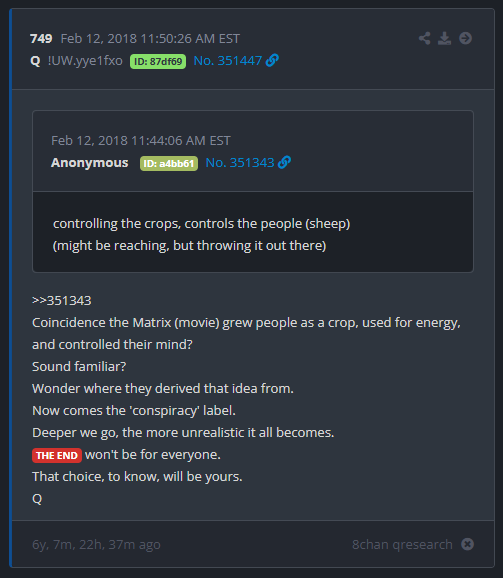
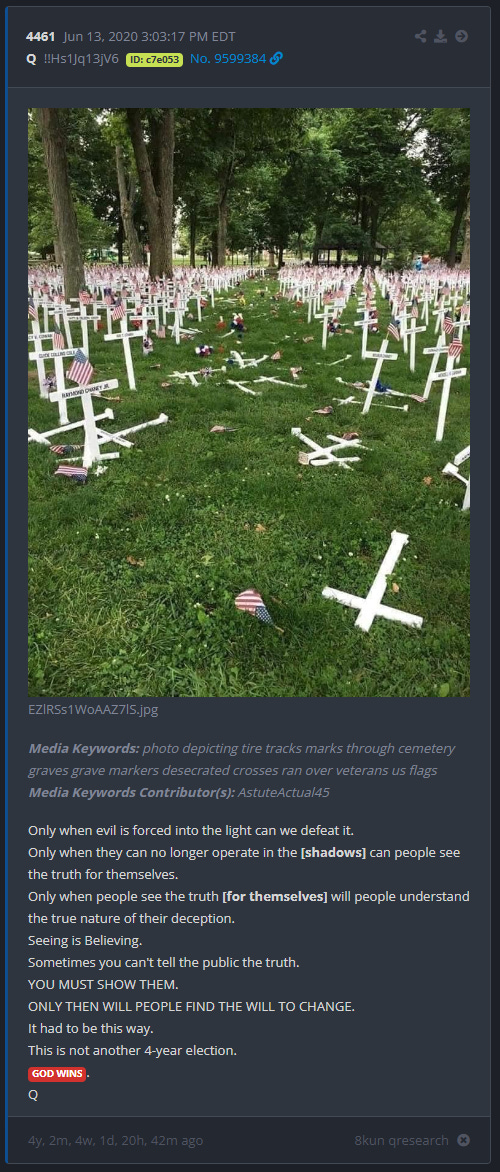
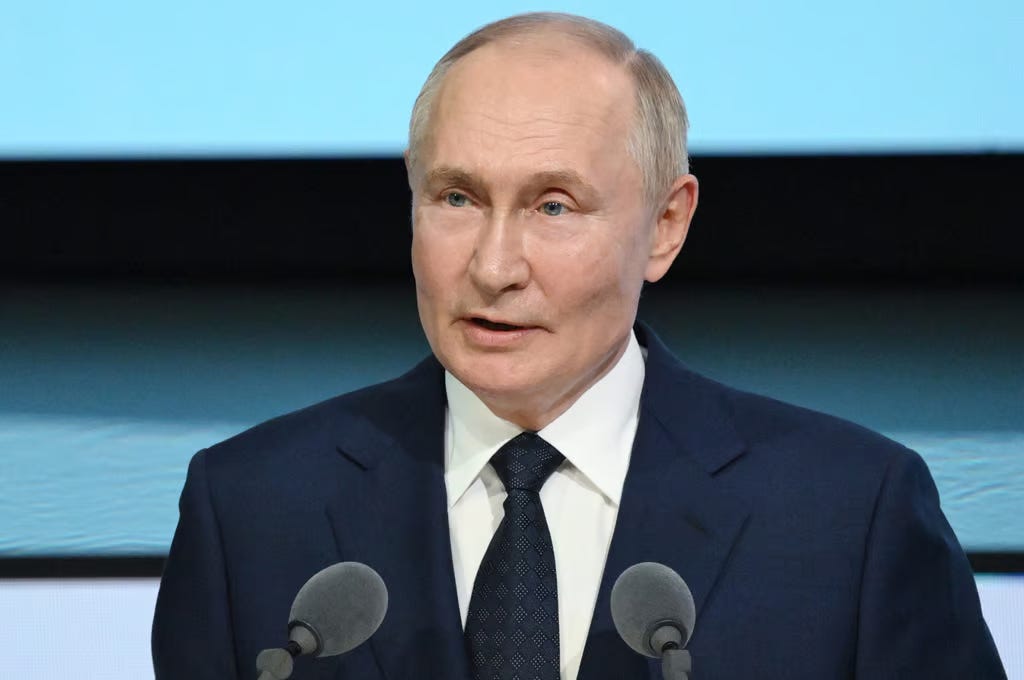
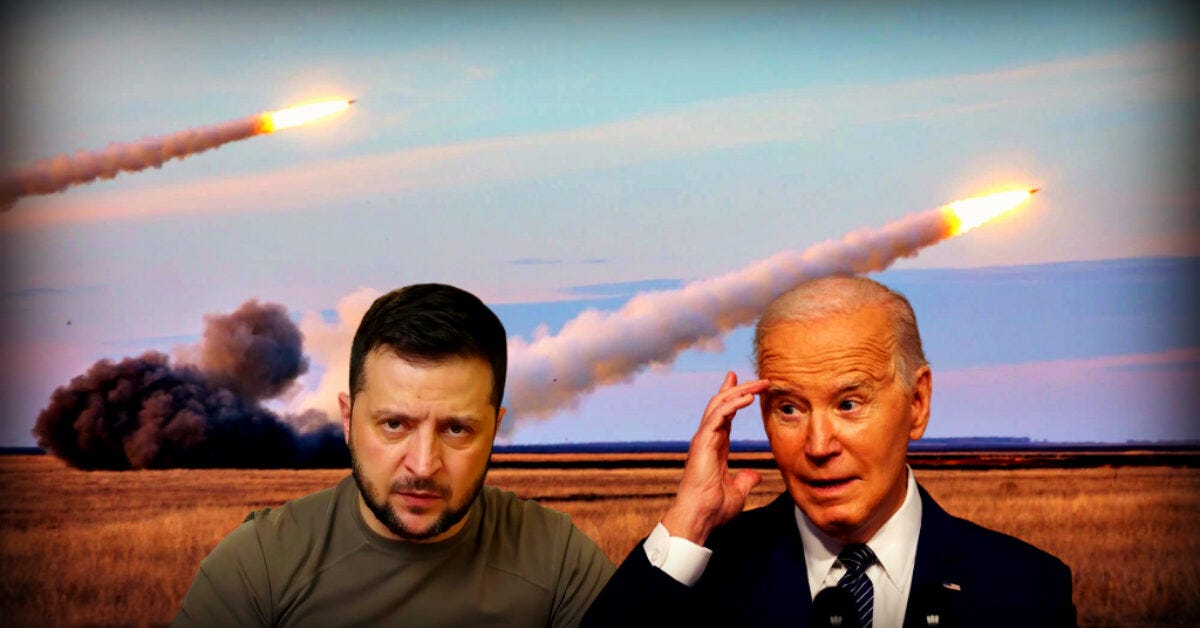
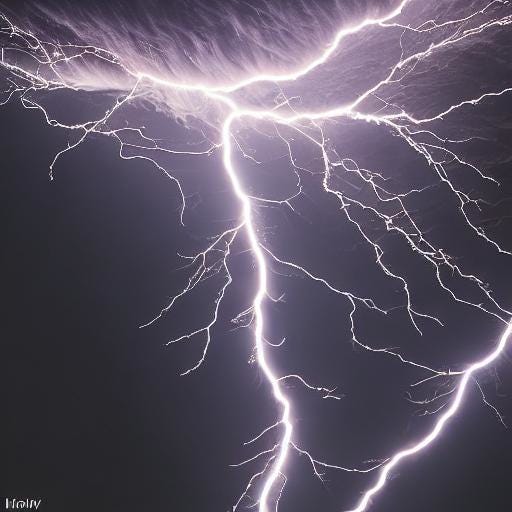
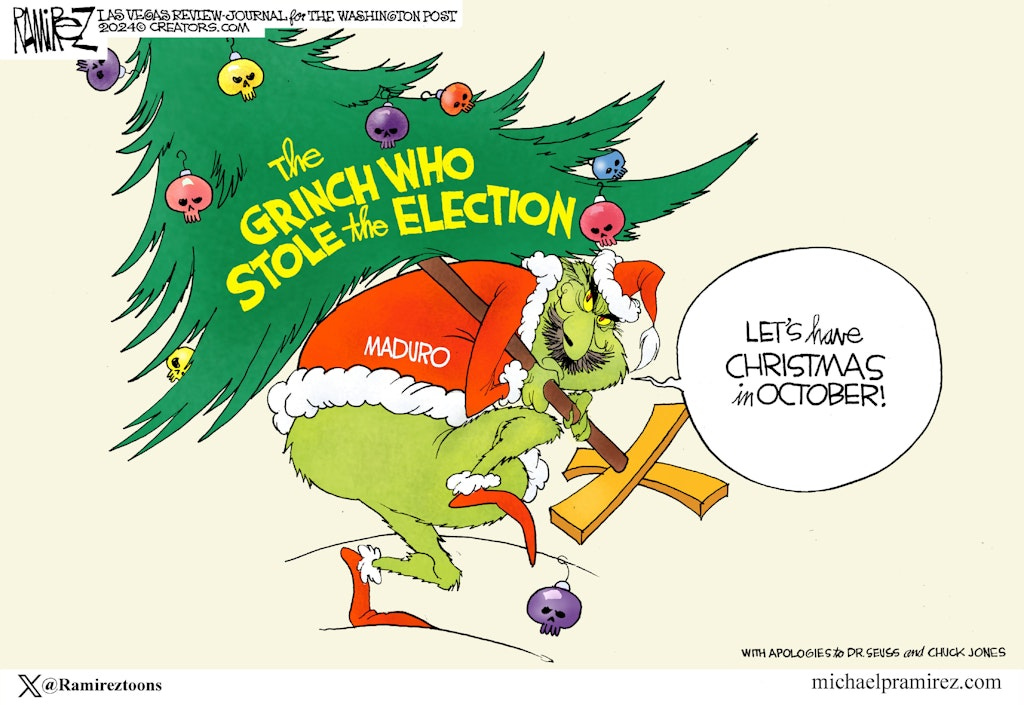









Share this post